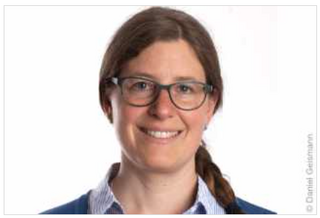Nikki Vercauteren ist Professorin für Datenassimilation in den Geowissenschaften am Institut für Geophysik und Meteorologie. Die Antrittsvorlesung findet am 13.November 2023 um 16 Uhr im Geo-/Bio-Hörsaal, Zülpicher Str. 49a, 50674 Köln mit einem anschließendem Empfang statt.
Der Titel lautet:
The turbulent atmosphere: leveraging observations to improve weather and climate models
Der passende Abstract dazu:
Meteorological processes are intrinsically multiscale and interconnected, and simulating the coupled Earth system’s dynamics with good predictive skills requires a deep understanding of the system’s complex dynamics paired with efficient mathematical methods. Tremendous improvements occurred in the past decades, increasingly representing dynamic couplings between different components (e.g. the atmosphere, land, oceans, cryosphere, ecosystems). Yet our ability to predict the energy, momentum, water and carbon cycles that shape our climate is limited, because these cycles all crucially depend on turbulent flows. Energy from the sun is partitioned at the Earth’s surface, leading to fluxes of heat, water, and carbon that are then transported through turbulence. Modelling turbulent fluxes accurately is a major challenge that requires understanding of many physical drivers, some of which relate to small-scale phenomena such as local terrain heterogeneity and unsteady flow perturbations. All phenomena cannot be represented explicitly even in the most advanced numerical weather prediction or climate models, which are limited by their necessarily finite resolution and simplified representation of unresolved processes such as turbulent fluxes and convective clouds. Innovative solutions are required for the following core research questions: How can a coarse climate model incorporate small-scale variability of fluxes of momentum, energy and matter? How can we make the best use of observations to understand and represent turbulent exchanges?
Emerging observations and advances in methods to leverage them trigger new opportunities to improve weather and climate models. I will show how multiscale data analysis can be combined with detailed simulations to learn about energy transfers in turbulent flows and thereby inform model developments. I will further discuss how methods from machine learning and uncertainty quantification can be used to best match weather and climate models with observations, theory and process models.
---
Wir freuen uns über zahlreiches Erscheinen!
